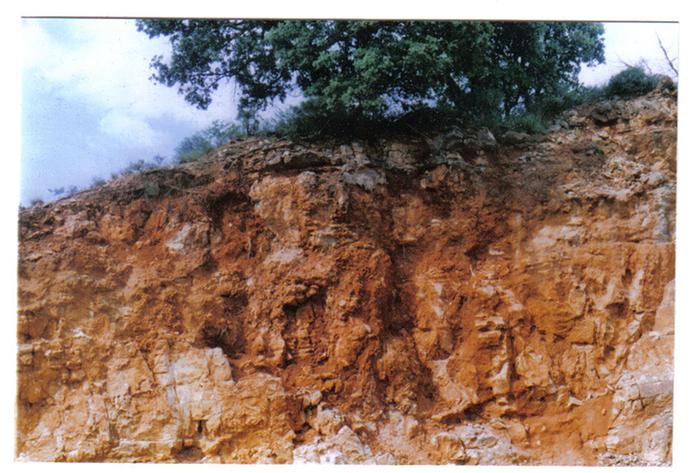
 4
4




 2
2




 3
3




 3
3




Mediterranean climate, hugel trenches, fabulous clay soil high in nutrients, self-watering containers with hugel layers, keyhole composting with low hugel raised beds, thick Back to Eden Wood chips mulch (distinguished from Bark chips), using as many native plants as possible....all drought tolerant.








Genevieve Higgs wrote:In my coastal BC garden summer drought is just as bad as spring and fall flooding. I've tried 2 foot raised garden beds 8 inch raised beds and a bed dug 8 inches deep then filled 4 inches above grade. I like that bed best of the three because of its water retaining and draining properties. It needs much less water than the raised beds.




Cristo Balete wrote:When it comes to happy plants we need to picture how deep their roots go, and that's way below any raised bed. So embracing your soil, learning what it has (which is a lot of good stuff), and what non-native vegetables need is a good start to "being where you are."
Rocks have really great minerals that make food taste even better and be more nutritious. Plant roots love that kind of soil with rocks in it because the roots can breathe. Just look at the big trees on the edge of your clearing. Those big trees need substantial nutrients and water, and it's already there. Do you know if those rocks are granite, or ...? They might affect the pH of the soil, but those evergreen trees imply you've got an acidic soil.
How fast the soil drains is an important factor.








Nicole Alderman wrote:You might enjoy looking through Tracy Wandling's thread. It takes place in coastal BC, with lots of rocks, too. She made a very impressive market garden in just a year! https://permies.com/t/56720/permaculture-projects/garden-fence-finally-finished-rainbows
 1
1




Mediterranean climate, hugel trenches, fabulous clay soil high in nutrients, self-watering containers with hugel layers, keyhole composting with low hugel raised beds, thick Back to Eden Wood chips mulch (distinguished from Bark chips), using as many native plants as possible....all drought tolerant.




John Duda wrote:You said:
"We have 3 pigs for meat and will be getting chickens soon.". And also: "fir sawdust, seaweed, alder and maple leaves and wood, good well water ...".
These are your keys to your gardening future. Also you mentioned manure from down the road.
You haven't said how big an area your garden will be.
Seems like you have every thing you need to improve your soil tremendously. As I worked the garden I'd keep a wheelbarrow with me to toss some of rocks into and perhaps sort them somewhat for size. In the future you may find a need for big rocks to build a wall or smaller stones for a road into......
I'd fence in the garden area and run the pigs inside the fence. I'd always use, at least, one of the borders of the permanent garden as the side of the fence where the pigs are at the moment. I'd leave the permanent edge posts in place. My posts would be harvested from the property if possible. One of the problems I have is that I have no idea how pigs would flourish if I dumped large quantities of sawdust of seaweed before they were put into an area. But I'd experiment. Spread sawdust in one area and seaweed in another and then watch what they do. Google can be your friend on that issue. I'd suggest you keep moving the pigs as they loosen up the last area. Then I'd dump manure and what ever soil amendment I had on top of the just vacated area.
As far as fencing I used to buy 360 foot rolls of "stock fence" inexpensively. Is that still available cheaply? Looks like it's now 330 foot rolls and 50¢ per foot about half the price of the 50 foot 5 ft high fence I've been using lately. I once rented a post hole digger and drilled 84 posts in one days rental, trying to get my moneys worth out of the rental. I said once, that was 30 plus years ago. But all the posts for those 84 holes came off the property, some came from the garden area itself. One of the posts, a 4 or 5 inch 12 foot high Wild Black Cherry rooted.
I would plant into the ground I have never built a raised bed in my life. Admittedly I've never dealt with all that rock... boulders.
If I did bring in a "dump truck load of "soil"" I'd use it for root crops, especially carrots. I'd also mix that with manure so that next spring I wasn't growing root crops in fresh manure. Even if it was "well composted". I'd be happier if it was in the soil for a half a year or so.
Good luck with your gardening adventure.
 1
1




 2
2




Karla Jaeger wrote:
My partner wants to build me cedar raised boxes and buy me a dump truck load of "soil" from the local landscape supply. He thinks excavating the rocks is crazy, because then I have to deal with them (it does seem like we have more rocks than dirt. And no, they are not the nice kind you can build rock walls with. We would rather not use them as bed edging because they're kind of ugly). This method has the appeal of him doing most of the work for me, and more or less instant results. The wood for the boxes is here already and he can mill it and build the boxes. I'm sure I could amend the lame topsoil blend, but I feel like my idea would result in healthier, more diverse soil, in more time.
I'd love to hear any other ideas or advice anyone may have to help me build soil here :)
Michael E.








Come join me at www.peacockorchard.com

| I agree. Here's the link: http://stoves2.com |






